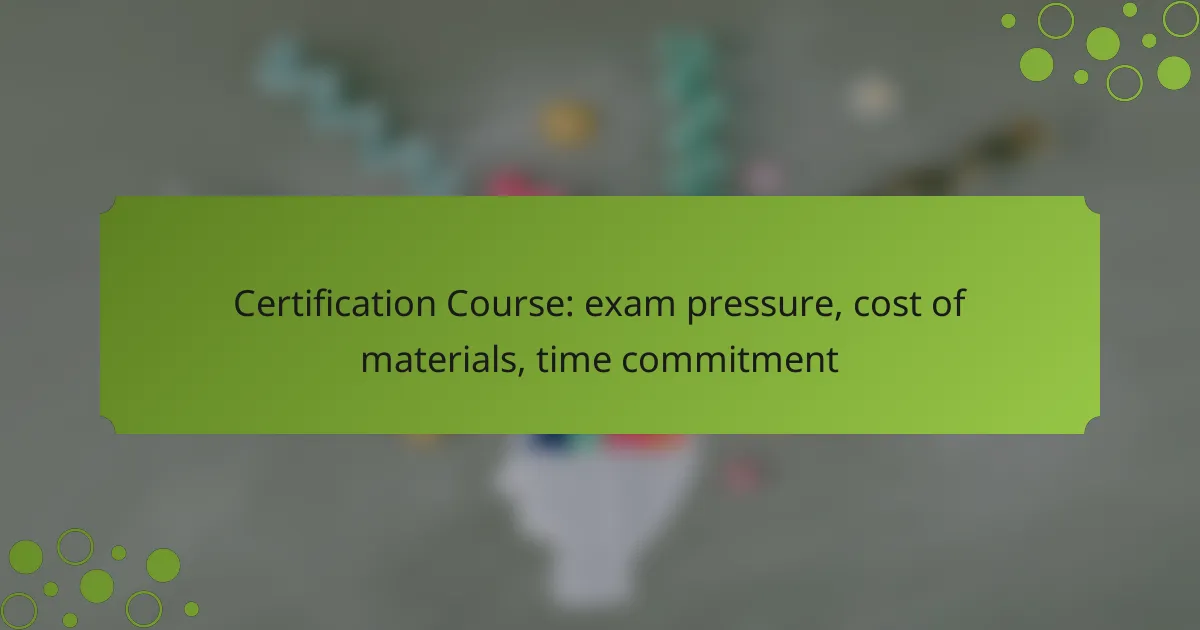Professional development courses are essential for enhancing job relevance by providing employees with up-to-date skills that align with industry trends. While costs can vary widely, understanding these expenses is vital for effective budgeting. Additionally, selecting courses that offer flexible schedules can help manage time constraints, allowing individuals to balance their learning with work and personal commitments.

How can professional development courses enhance job relevance in Canada?
Professional development courses in Canada can significantly enhance job relevance by equipping employees with current skills and knowledge that align with industry trends. These courses help individuals stay competitive and adapt to the evolving demands of their roles.
Skill alignment with industry demands
Professional development courses ensure that the skills you acquire are in line with what employers are looking for in Canada. Many industries, such as technology and healthcare, are rapidly changing, requiring workers to update their skill sets regularly.
Consider enrolling in courses that focus on emerging technologies or regulatory changes specific to your field. For example, a marketing professional might benefit from a course on digital marketing strategies, which are increasingly vital in today’s job market.
Increased job performance
Engaging in professional development can lead to noticeable improvements in job performance. By learning new techniques and best practices, employees can enhance their efficiency and effectiveness in their roles.
For instance, a project manager who takes a course on agile methodologies may find that their ability to manage projects improves, resulting in better team collaboration and project outcomes. This not only benefits the individual but also contributes positively to the organization’s success.
Networking opportunities
Professional development courses often provide valuable networking opportunities that can lead to career advancement. Meeting peers and industry leaders during these courses can open doors to new job prospects and collaborations.
Participating in workshops or seminars allows you to connect with like-minded professionals and share insights. Building a strong professional network can be crucial for career growth, especially in competitive fields. Consider leveraging platforms like LinkedIn to maintain these connections post-course.

What are the costs associated with professional development courses?
Costs for professional development courses can vary significantly based on the type of course, institution, and format. Understanding these costs is crucial for budgeting and making informed decisions about your education.
Tuition fees for online courses
Tuition fees for online courses typically range from a few hundred to several thousand dollars, depending on the provider and course length. Many institutions offer flexible payment plans to help manage these expenses. It’s advisable to compare different programs to find one that fits your budget while still meeting your professional goals.
Hidden costs of materials
In addition to tuition, consider hidden costs such as textbooks, software, and other materials that may be required for the course. These expenses can add up, often ranging from a few dozen to several hundred dollars. Always check the course syllabus for a list of required materials to avoid unexpected costs.
Financial aid options in Canada
In Canada, various financial aid options are available for those pursuing professional development courses. Government programs, scholarships, and employer-sponsored training funds can help offset costs. Researching and applying for these options early can significantly reduce your financial burden.

How to manage time constraints for online courses?
Managing time constraints for online courses involves selecting programs that fit your schedule and allow for flexibility. Prioritizing courses with adaptable timelines can help you balance learning with work and personal commitments.
Flexible scheduling options
Many online courses offer flexible scheduling, allowing you to choose when to engage with the material. This can include options like evening or weekend classes, making it easier to fit learning into your busy life.
Some platforms provide a calendar tool to help you plan your study sessions around your existing commitments. Look for courses that allow you to adjust deadlines or access materials at your convenience.
Self-paced learning benefits
Self-paced learning allows you to progress through the course at your own speed, which is ideal for those with unpredictable schedules. You can spend more time on challenging topics and move quickly through material you grasp easily.
This approach can reduce stress, as you won’t feel pressured to keep up with a fixed timeline. Many online courses offer this format, making it easier to manage your learning alongside work and personal responsibilities.
Time management strategies
Effective time management strategies are crucial for balancing online courses with other obligations. Start by setting specific goals for each study session and breaking down larger tasks into manageable steps.
Consider using tools like digital calendars or task management apps to schedule study times and reminders. Prioritize your coursework by allocating dedicated time slots each week, and avoid multitasking to enhance focus and retention.

What prerequisites should be considered before enrolling?
Before enrolling in a professional development course, it’s essential to assess your current knowledge and skills relevant to the course content. Understanding these prerequisites can help ensure that you gain the most from the experience and avoid unnecessary challenges.
Required prior knowledge
Many professional development courses assume a baseline level of knowledge in the subject area. For instance, a course on advanced data analytics may require familiarity with basic statistics and data management concepts. Evaluating your existing knowledge can help you identify any gaps that need addressing before enrollment.
Consider reviewing course descriptions and syllabi to determine the expected prior knowledge. If the course is designed for intermediate or advanced learners, you might need to complete foundational courses first to keep pace with the material.
Technical skills needed
Technical skills are often crucial for success in professional development courses, especially those focused on specific tools or software. For example, a course on digital marketing may require proficiency in social media platforms and basic graphic design software. Assessing your technical abilities will help you understand what skills you may need to brush up on.
It’s beneficial to create a checklist of required technical skills based on the course outline. If you find that you lack certain skills, consider taking short tutorials or workshops to build your competency before the course begins.

How to choose the right professional development course?
Choosing the right professional development course involves assessing its relevance to your current job, understanding the costs involved, and evaluating time commitments. Prioritize courses that align with your career goals and offer a good return on investment.
Course accreditation importance
Course accreditation indicates that a program meets specific standards set by recognized organizations. Accredited courses are often more respected by employers and can enhance your resume.
When selecting a course, check if it is accredited by relevant professional bodies in your field. This can significantly impact the value of the certification you receive upon completion.
Instructor qualifications
The qualifications of the instructor can greatly influence the quality of the course. Look for instructors with relevant industry experience and advanced degrees in their field.
Research their background and teaching style through reviews or professional profiles. A knowledgeable instructor can provide valuable insights and practical applications that enhance your learning experience.
Course reviews and testimonials
Reviews and testimonials from previous participants can offer insights into the course’s effectiveness and relevance. Look for feedback on the course content, instructor engagement, and overall satisfaction.
Consider checking multiple sources for reviews, such as educational platforms or professional networks. Positive testimonials can help you gauge whether the course will meet your expectations and career needs.

What are the emerging trends in professional development?
Emerging trends in professional development focus on personalized learning, digital platforms, and skills relevant to current job markets. These trends emphasize adaptability and continuous learning to meet the evolving demands of various industries.
Relevance to current job
Professional development should align closely with your current job responsibilities and future career aspirations. This ensures that the skills acquired are immediately applicable and beneficial in your work environment.
Consider identifying specific competencies that are in demand within your organization or industry. For example, if your role requires data analysis, pursuing courses in data visualization or analytics tools can enhance your effectiveness and career trajectory.
Cost concerns
Cost is a significant factor when considering professional development courses. Prices can vary widely, from free online resources to several thousand dollars for accredited programs.
Evaluate your budget and explore options such as employer-sponsored training, which can alleviate financial burdens. Additionally, look for scholarships or grants that may be available for specific courses or certifications.
Time constraints
Time constraints can make it challenging to engage in professional development. Many courses offer flexible schedules, allowing you to learn at your own pace, which can help fit education into a busy work life.
Consider dedicating specific time slots each week for learning, even if it’s just a few hours. Online platforms often provide bite-sized modules that can be completed in short sessions, making it easier to integrate learning into your routine.



